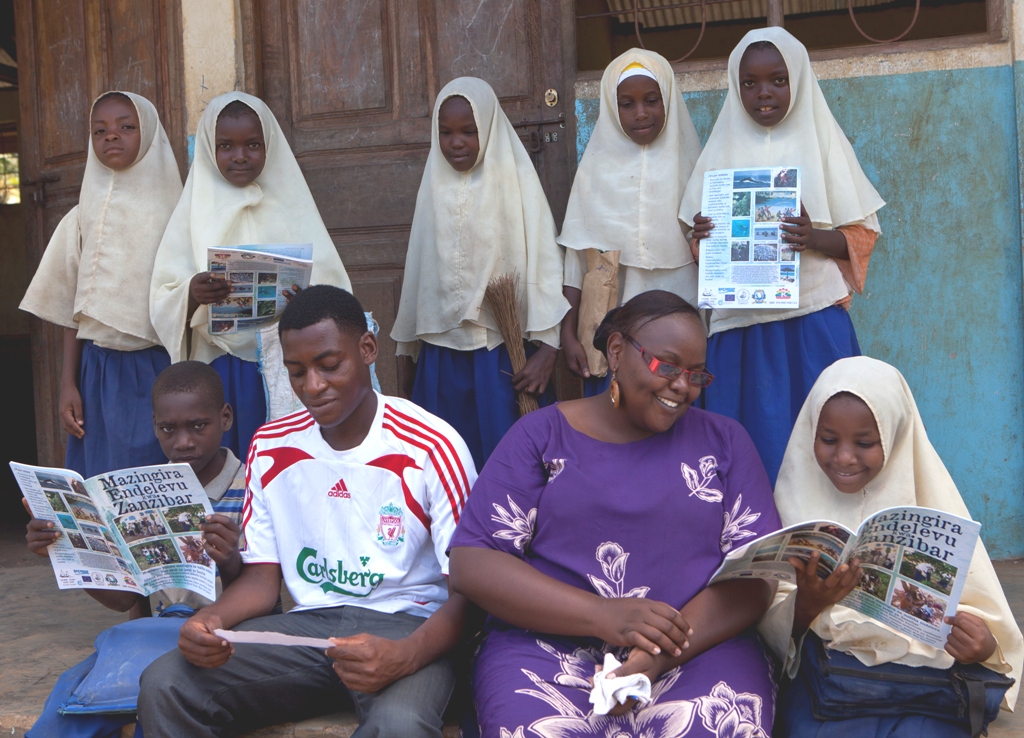



Public communication, education and awareness-raising on the importance and vulnerability of the marine ecosystem is a key building block for CHICOP which offers environmental education for fishers, students, teachers, government officials, tourism operators and visitors. CHICOP implements ‘Education for Sustainable Development’ through an ‘Environmental Education program’ which since 1995 has welcomed more than 6400 schoolchildren, 1100 teachers and 690 community members for one-day field excursions to Chumbe Island. The excursions offer hands-on activities, discussions in the Island’s own classroom using interactive learning tools, and special floatation devices make it possible for everyone to participate in snorkeling which is especially unique for the Muslim girls and women in the region, who rarely learn how to swim. In collaboration with the Ministry of Education, CHICOP has incorporated a coral reef module into the local school curricula and conducts teacher training related to environmental sustainability aimed at assisting in the establishment of environment clubs in schools and communities across Zanzibar. These clubs address issues such as waste management, biodiversity loss and climate change mitigation projects.
- Access: close proximity of Chumbe Island to Zanzibar.
- Fringing reef on the western side of the island is suitable for educational programs.
- Since all local field excursions, workshops and associated educational activities are provided free of charge at the expense of CHICOP, revenue generated from eco-tourism fully funds the Environmental Education programs.
- Trust and good relationships with local institutions (such as schools and the Ministry of Education) and multi-level learners.
Establishing the education program from the very start of operations on Chumbe has proven critical for both the success of the education initiatives and the MPA more generally. From the moment the MPA was established, and even prior to the tourism infrastructure being completed and revenue generating operations commencing, schools programs began, supported by private funds and small scale grants. This enabled a wide cross-section of society (school children, teachers, fishers groups etc.) to visit and learn on Chumbe, gaining awareness on both the importance and role of the marine environment in their everyday lives, and the importance of MPAs and the ecosystem services being supported by Chumbe’s protected habitats. Implementing systematic safety protocols for all activities provides security for individuals to try new activities and learn new information. Curriculum support to the Education Ministry has provided Zanzibari children with a fresh appreciation of the marine environment.